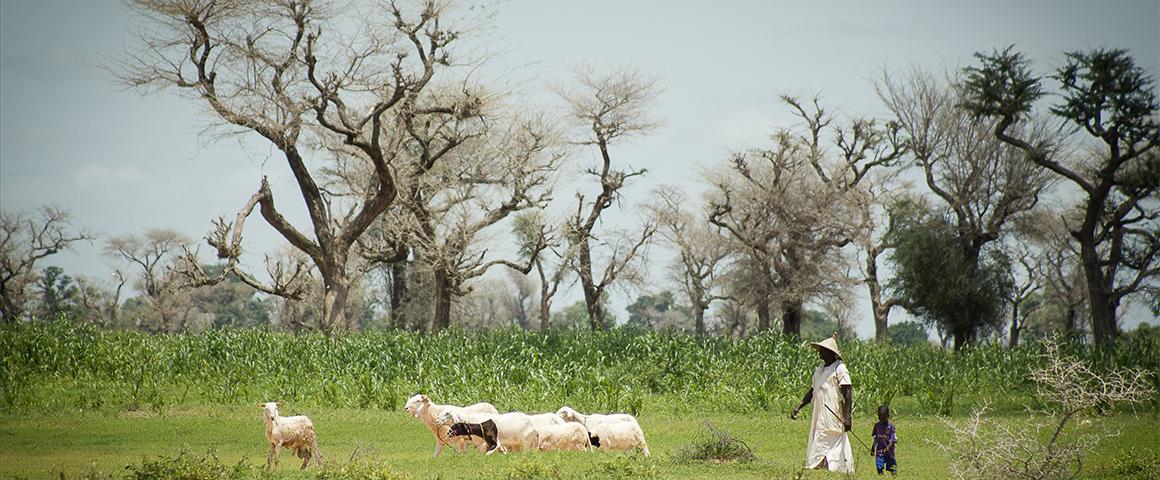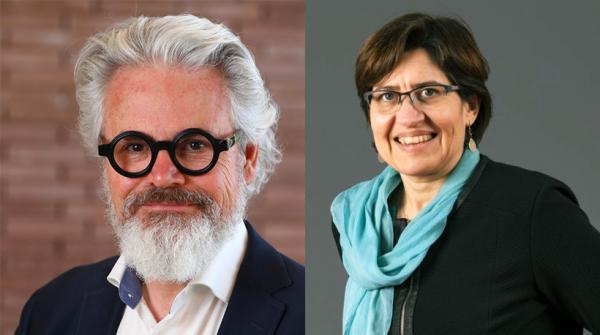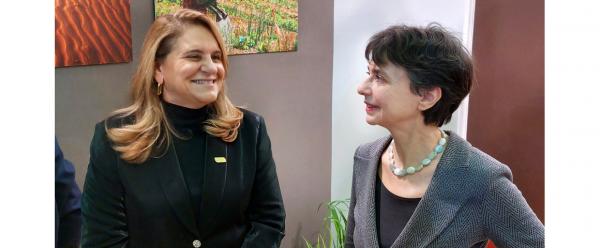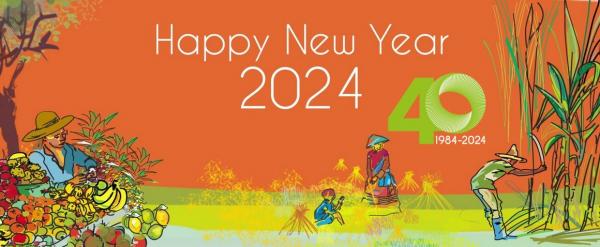Launched in 2007 by the African Union to combat land degradation and desertification, the Great Green Wall (GGW) initiative was given a new approach and new priorities at the One Planet Summit in January 2021.
This pan-African initiative now takes account of consultations with local communities and ensures its actions are scaled according to the territories in question. CIRAD fully supports this new vision of the Great Green Wall.
In this context, CIRAD is contributing to this game-changing initiative by different means, specific to its competence, its expertise and its scientific excellence.
Integrated territory-based approaches
The goal of the initiative is to couple ecological restoration with socioeconomic development, in particular by strengthening the agricultural sector and its value chains in the territories.
Territory-based approaches are a priority research topic at CIRAD, which is thus providing its recognized expertise in the management of common goods and the organization of actors and governance systems to support the GGW initiative.
CIRAD has observed that territories are currently the scale on which the most significant progress is being made and the most tangible solutions found, particularly with a view to achieving the sustainable development goals. The various issues relating to territories are no longer seen as generalized, bottom-down watchwords, but as commons managed by a range of players and institutions.
Development through research
The continuum between research and development is a key element of the new GGW campaign. The co-design of solutions to problems on the ground with the beneficiary populations, which has been the preferred approach adopted by CIRAD for many years, is also endorsed by this initiative.
With its national partners, CIRAD adopts an inclusive approach, built on questions raised at the local level. Together, they implement research and development programmes, especially within the framework of five platforms in partnership for research and training (dPs).
Context-based multi-level research
On the strength of its experience of working in some fifty countries in Africa, Latin America, Asia and the Pacific, CIRAD has drawn up a geographical partnership strategy, centring on the implementation of platforms in partnership for research and training.
The context-based research conducted by CIRAD takes account of the diversity of socio-ecosystems in the GGW countries. This approach, which addresses the specific challenges of each territory, meets the need for multi-level integrated research, as mentioned in the initiative’s 10-year priority investment plan (2021-2030).
The need to consider impact
Analysing the impact of work and research, by establishing appropriate indicators, is essential to the initiative. CIRAD will contribute to this process by using and sharing its tools to measure impact, especially the ImpresS methodology it has developed.
This methodology is original in that it involves all partners. Through a participatory co-design process, it produces a shared vision of the expected impact of research actions and of the process to monitor and evaluate this impact.
How does CIRAD's research contribute to sustainable development in tropical and Mediterranean countries? How can we build research operations that optimize its impact on that development?
A support framework aligned with the Ouagadougou Declaration
In 2018, CIRAD and several research institutes in the Sahel region (*) signed the Ouagadougou Declaration in order to support agricultural and rural development in the Sahel.
The focal areas identified by these research actors are fully articulated with the five key pillars of the GGW.
The position paper takes up these focal areas, integrating them into the framework of the five pillars:
- Restoration, planning and recovery of land and water resources and biodiversity conservation
- Managing and reducing vulnerability to climate impacts
- Economic development and security
- Communication, marketing and advocacy
- Building technical and scientific capacities, based on training, professional development and support for research.
A selection of emblematic projects illustrates the specific actions currently conducted on the ground in the context of these focal areas and pillars in the seven GGW countries. These projects are coordinated by CIRAD or one of its partners.
Some of these focal areas are also taken up in the French Scientific Committee on Desertification (CSFD) 2022 Topic Brief on the GGW.
Download the position paper
(*) The Ouagadougou Declaration (2018) was co-signed by:
- the national agricultural research centres (CNRA),
- the Permanent Interstate Committee for Drought Control in the Sahel (CILSS),
- the West and Central African Council for Agricultural Research and Development (CORAF),
- the West African Science Service Center for Climate Change and Adapted Land Use (WASCAL),
- CIRAD,
and validated during the 2019 Niamey workshop.






























